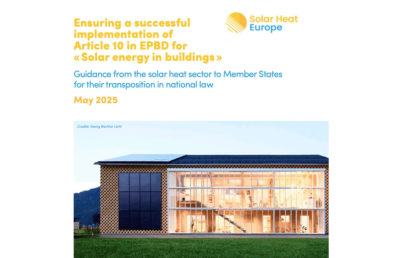
Sufficiency: A cornerstone of the EU’s climate roadmap

Sufficiency: A cornerstone of the EU’s climate roadmap
In this report, the European Commission highlights the pivotal role of sufficiency in the building sector as an effective strategy to reduce emissions, optimise resource use, and address the housing crisis. A key read for advancing a fair and sustainable climate transition.
The final report prepared by Buildings Performance Institute Europe (BPIE) in collaboration with Ramboll for the Directorate-General for Environment of the European Commission underscores the critical role of sufficiency in the building sector as a means to reduce carbon emissions across the entire lifecycle of buildings.
Through the analysis of real-world initiatives in five Member States, the study demonstrates that optimising the use of the existing building stock—such as converting vacant offices into housing or subdividing single-family homes—can yield substantial CO₂ savings while simultaneously addressing pressing social challenges, including housing shortages and demographic ageing.
Beyond its climate impact, sufficiency measures offer significant co-benefits, including urban revitalisation, reduced land consumption, and enhanced social cohesion.
The report highlights that many of these initiatives originated from social or economic objectives rather than environmental ones, reinforcing their political feasibility. BPIE calls for sufficiency to be integrated as a cross-cutting principle within climate action, housing policy, and the just transition agenda, and urges the promotion of intersectoral dialogue to maximise its impact at the European scale.
Sufficiency in the building sector for the whole life carbon roadmap – final report.pdf
English (1.2 MB - PDF)
